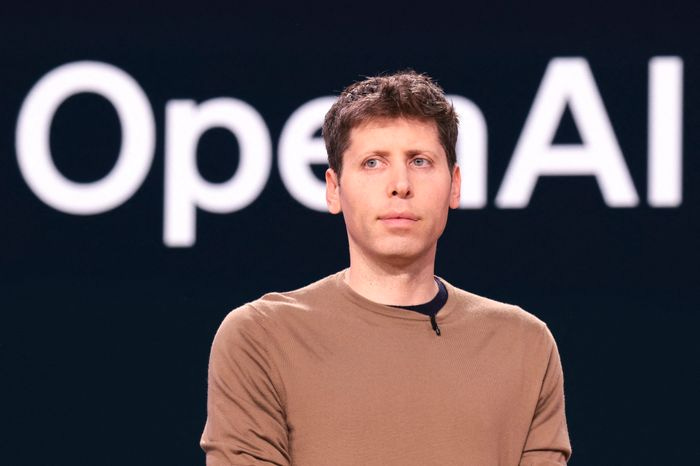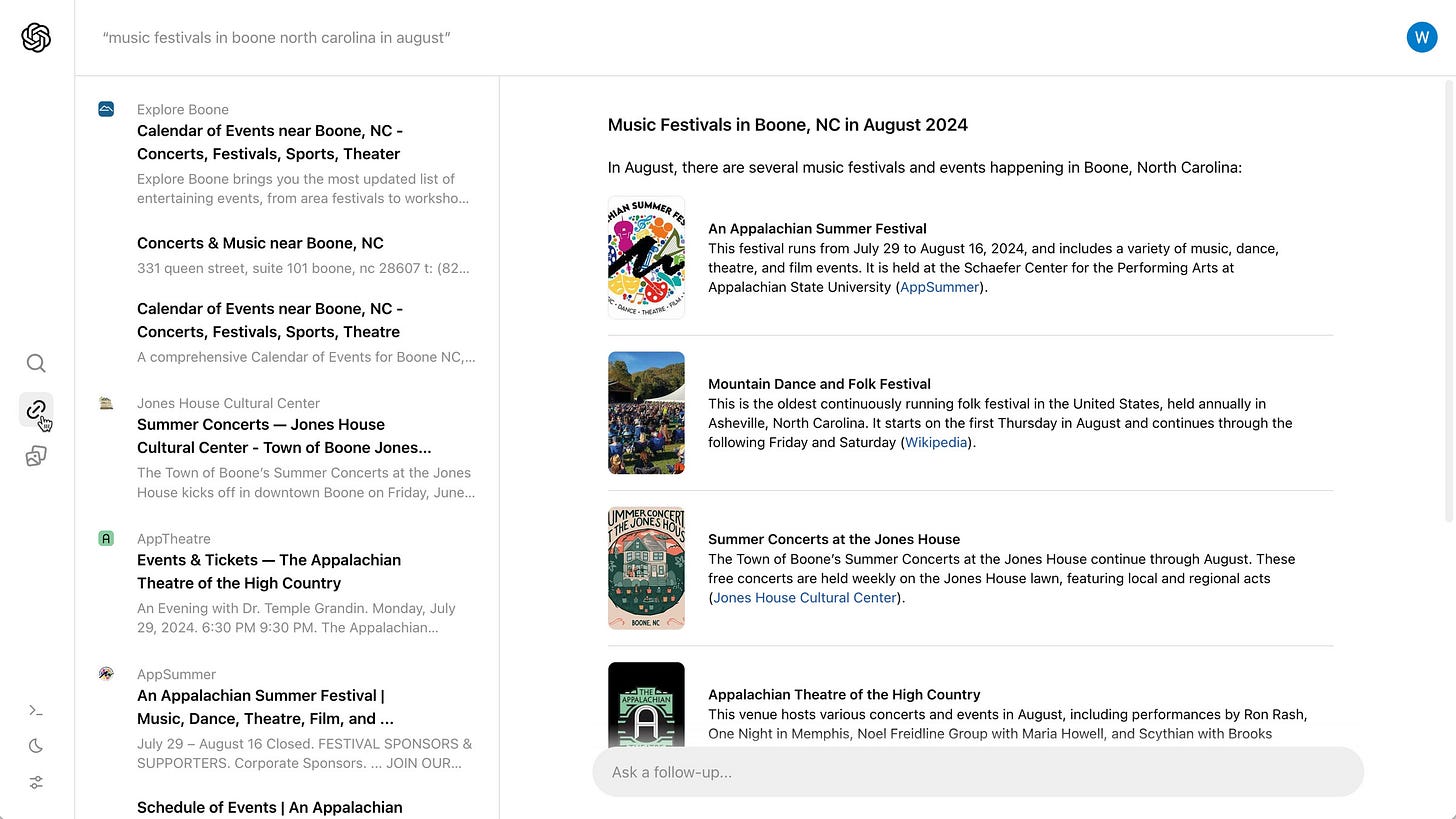AI: OpenAI's AI Search is here. RTZ #429
...the quest for AI Search 'product-market-fit' continues
Well, another new AI for Search entrant is in the field, after many others like Meta’s Llama 3.1 based Meta AI. OpenAI’s ‘SearchGPT’ is here…kind of.
After months of anticipation in this AI Tech Wave, the second of the 7 most anticipated OpenAI product announcements for 2024 I’ve talked about, is finally here. Its ‘AI for Search’ product, as a ‘prototype’ test product. The first of course is GPT-5, OpenAI’s next generation successor to industry pace-setting LLM AI model GPT-4 Omni.
The one that everyone from Anthropic, to Meta and others are catching up to. Well, today, OpenAI gave the world a glimpse of it’s AI for Search, dubbed of course, ‘SearchGPT’. As OpenAI explains it:
“We’re testing SearchGPT, a temporary prototype of new AI search features that give you fast and timely answers with clear and relevant sources.”
It’s a by invitation ‘prototype’ launch, as OpenAI explains with a lot of animated examples on its website:
“We’re testing SearchGPT, a prototype of new search features designed to combine the strength of our AI models with information from the web to give you fast and timely answers with clear and relevant sources. We’re launching to a small group of users and publishers to get feedback. While this prototype is temporary, we plan to integrate the best of these features directly into ChatGPT in the future. If you’re interested in trying the prototype, sign up (opens in a new window) for the waitlist.”
All eyes are of course now on the direct competition of OpenAI’s ‘SearchGPT’ with Google’s Gemini powered ‘Google AI Search Overviews. Not to mention upstart unicorn startups like Perplexity, amongst others. And established players like Meta with Meta AI. But Google is the primary focused on company of course.
As the WSJ explains in “OpenAI Is Launching Search Engine, Taking Direct Aim at Google”:
“Built with input from publishers, SearchGPT will summarize real-time information on websites”.
“The tool, called SearchGPT, will summarize the information found on websites, including news sites, and let users ask follow-up questions, just as they can currently with OpenAI’s popular chatbot, ChatGPT. The sources are linked at the end of each answer in parentheses.”
“OpenAI also built a sidebar where it said users can see more results and sources with relevant information.”
“SearchGPT is OpenAI’s most direct challenge yet to Google’s dominance in search since the release of ChatGPT in 2022 caught the tech company flat-footed. Google this year widely rolled out its own AI search feature that synthesizes information from multiple web sources.”
Other descriptions of the ‘soft launch’ worth perusing are from the Verge, CNBC, the Information, and Axios. And of course a lot of attention will be paid to how OpenAI goes about licensing content for the SearchGPT product, as well for it’s main ChatGPT service. Especially as competitors like Perplexity are seeing increasing legal tussles about how it goes about delivering AI powered Search.
And of course, OpenAI’s partner Microsoft, is also focused on adding Generative AI features to its Bing Search, which has a low single-digit market share in the global Search business.
The search for AI’s ‘product-market-fit’ in the global Search business is now well underway. For both users, and of course advertisers.
In these early days of this AI Tech Wave, it’s fully logical that companies old and new try and figure out how AI can enhance Search. For now, I’ll stay with my call from last year: Google, the OG.
I explained then in detail how Google will be more than able to also enhance their market leading Search services with AI technologies. And deliver them at Scale with their industry leading AI TPU chip and data center capabilities. Delivered where billions of users already search Google almost ten billion times a day.
I’ts important to underline again that Compute resources at scale are critical for AI Search, at least as much as for ‘Chatbot’ services. As I explained yesterday, AI products and services, from chatbots, to search to AI reasoning and Agentic capabilities, are a ‘variable cost’ service. They require ever increasing amount of expensive training and inference compute as mainstream users grow in numbers and their usage.
New competition in a old space is a good thing for us all though. And I for one, am looking forward to trying OpenAI’s SearchGPT when I get my turn off the wait list. Stay tuned.
(NOTE: The discussions here are for information purposes only, and not meant as investment advice at any time. Thanks for joining us here)








